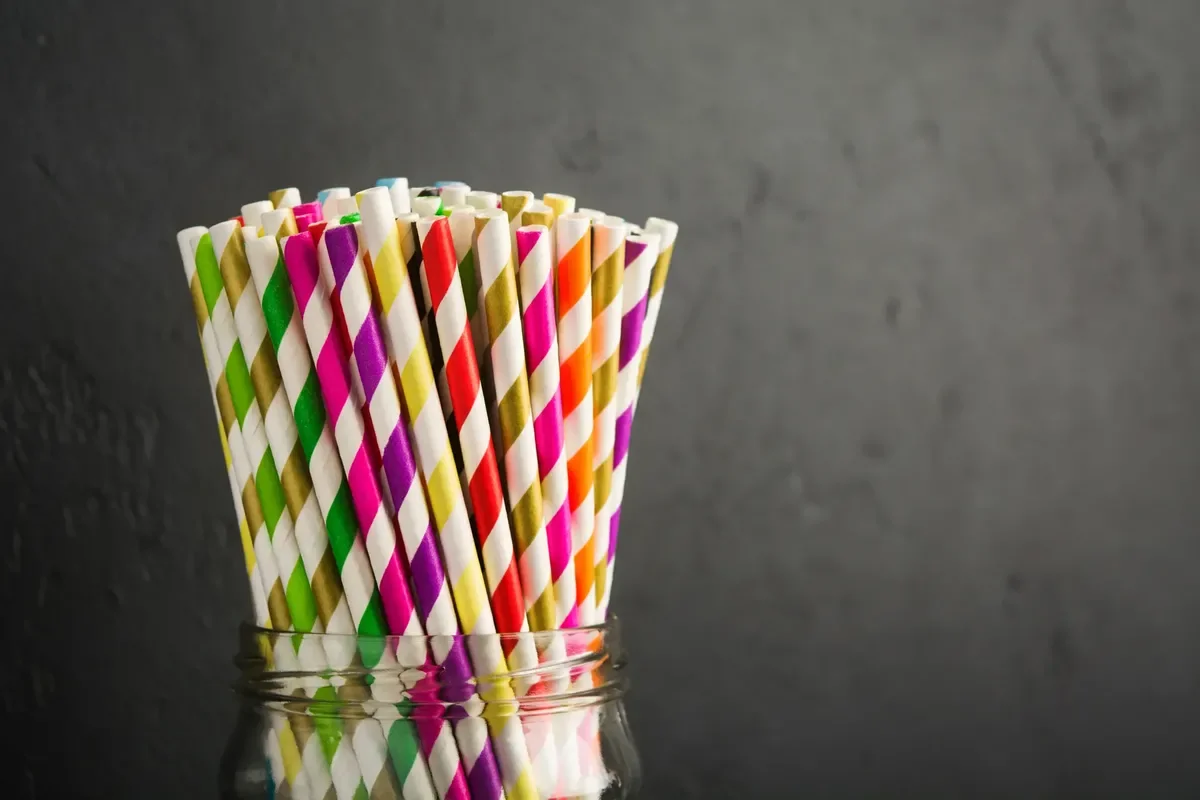Paper straws are not so environmentally friendly, 90% of them contain toxic substances called PFAS and they never break down.

A European study reveals that around 90% of the "eco-friendly" paper straws we drink our drinks and coffee from contain so-called "forever" chemicals called PFASs, which don't break down easily and can build up in the body, causing potential problems healths.
In an era when European Union has imposed paper straws (but you can also find plastic straws from China, where it has not been banned construction them) an environmental study came to stir the quiet waters.
According to New Atlas, “Forever chemicals” is the colloquial name given to a class of more than 12.000 chemicals, more formally known as poly- and perfluoroalkyl substances (PFAS), that rarely break down in the environment or in our bodies.
The researchers looked at 39 different brands of paper, glass, bamboo, stainless steel and plastic straws and analyzed them for 29 different PFAS compounds. The majority of brands tested (69%) contained PFASs, and a total of 18 different PFASs were detected.
The paper straws were the most susceptible to contain PFAS, with the chemicals detected in 90% of the brands tested, in highly variable concentrations.
Perfluorooctanoic acid (PFOA), a compound linked to high cholesterol, reduced immune response, thyroid disease, and increased kidney and testicular cancer, was identified the most. PFOA has been banned worldwide since 2020!.
Trifluoroacetic acid (TFA) and trifluoromethanesulfonic acid (TFMS), ultra-short-chain PFASs that are highly water-soluble and therefore likely to washed out of straws in drinks and coffees.
Bamboo straws fared slightly better than paper straws, with PFAS found in 80% of the brands tested. But the chemicals were also found in 75% of the plastic straws and 40% of the glass straws.
PFASs were not detected in any of the steel straws tested. The PFAS concentrations were low and, the researchers say, pose little risk to human health. However, the problem with PFAS is that these compounds are bioaccumulative, meaning they can build up over time because they are absorbed but not excreted.
The researchers say that while the study did not determine whether the PFASs were added to the straws or were the result of contamination from, for example, the soil in which the plant materials are grown. The presence of the chemicals in almost every brand of paper straws is likely because PFASs were used as a water-repellent coating.
The study published in the journal Food Additives and Contaminants.



